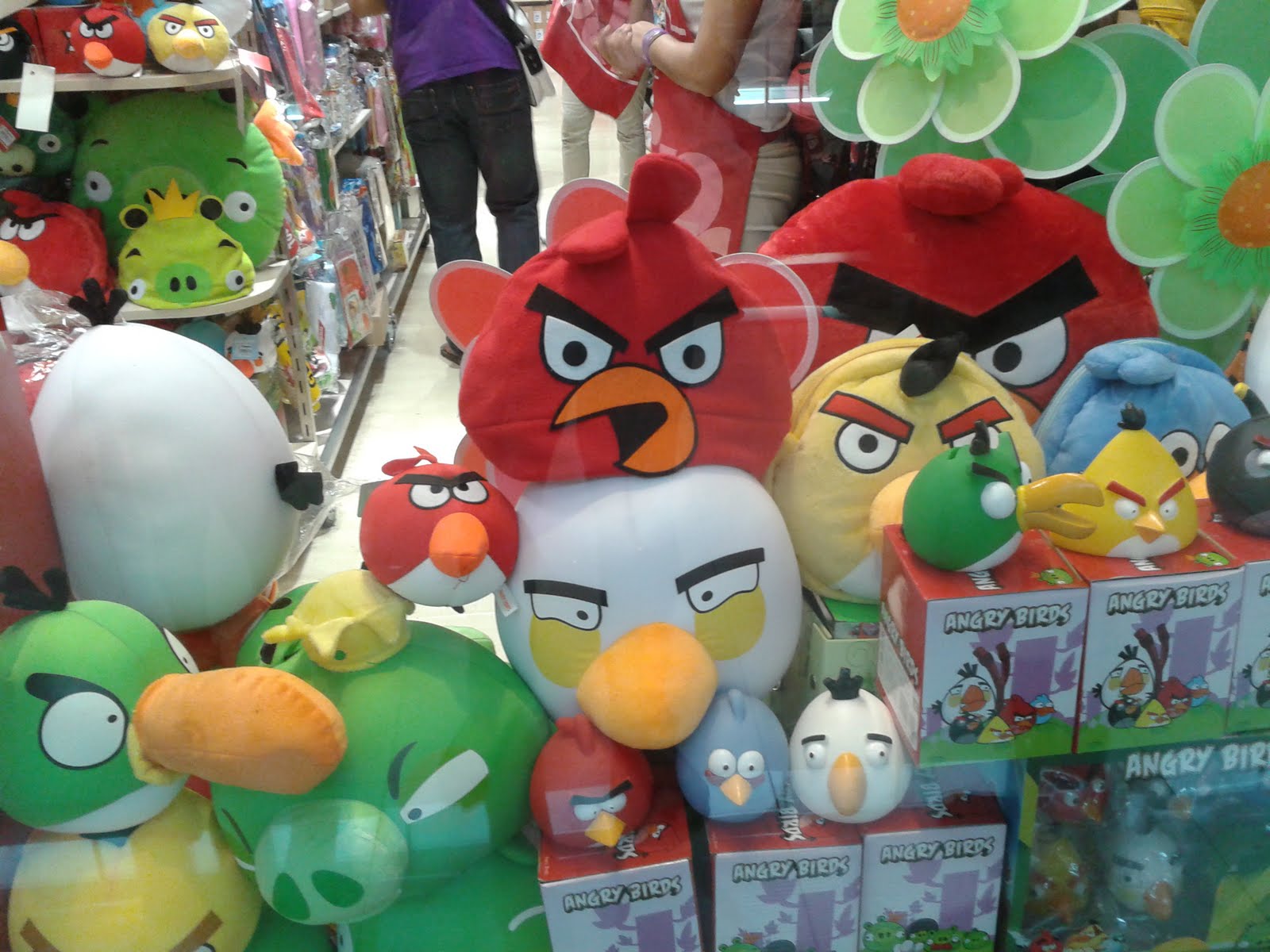by Meelad Sadat
Rovio’s Peter Vesterbacka gave a frank assessment of his company’s strategy for creating entertainment brands with longevity at GamesBeat 2012. Vesterbacka, chief marketing officer at the game maker best known for Angry Birds, was speaking at a fireside chat moderated by Steve Fowler, GM of [a]list games.
Vesterbacka kicked off the session with a video trailer highlighting Rovio’s next game, Amazing Alex. It’s based on IP created by indie developers Snappy Touch and Mystery Coconut, which they released into mobile app stores a little more than a year ago as Casey’s Contraptions. Rovio acquired it in May of this year. They’ve since re-branded the game, and are in the process of re-launching it.
To start the discussion, Vesterbacka revealed that 30 percent of Rovio revenue last year came from physical products. On display at his speaking session was merchandise that very likely attributed to that total, with Vesterbacka donning an Angry Birds hoodie and keeping a few stuffed dolls on stage that he later launched into the crowd.
Rovio wasn’t an overnight success. The company put out more than 50 games before it had a mega hit with Angry Birds. It taught the company that the first step to building a following is to make a good game. They won’t talk about building a fan base – the game has to do that.
“You build great entertainment, that’s a good start,” said Vesterbacka. “You have to be serious about marketing as well, but it starts with the game. The game has to earn the right for us to talk about fans.”

Once you have a hit, he added, you chase it. Rovio wants to create a circle of products that support key brands. They want people to play a game, see a TV show based on it, buy the toys. It’s what they’re doing with Angry Birds, which now has an animated show on Nickelodeon.
“We built the biggest distribution network on the planet. We want to be the first entertainment property with one billion fans.”
Vesterbacka said China is Rovio’s fastest growing market. “We’ve been very successful outside of the U.S.,” he said.
In response to expanding into less policed territories where piracy is more common, Rovio’s solution is opening retail stores, with locations first in Shanghai and Beijing. “We want to create a better experience to get our products, rather than use legal means,” Vesterbacka said.
When asked what can Rovio teach an indie or start-up developer about building brands, Vesterbacka said, “You want to look at what you become when you grow up. You need to be serious about marketing. Make a great game, but that’s half the battle.”
But there’s no easy answer, he admitted. It’s not about simply acquiring users and calculating the cost to acquire each new one. “It’s a slippery slope. You keep having to spend money to acquire users, and that’s not sustainable.”
Rovio sees IP incubation through a long term lens. “We think where do want to be in two years, or ten years,” said Vesterbacka. “We’re building an entertainment company. I’m really convinced that there will be a number of big brands coming from platforms like iOS.”
They see Mickey Mouse and Mario as examples that Rovio can follow with Angry Birds and Amazing Alex. “You don’t have to be a Hollywood studio to build an entertainment franchise anymore.”

